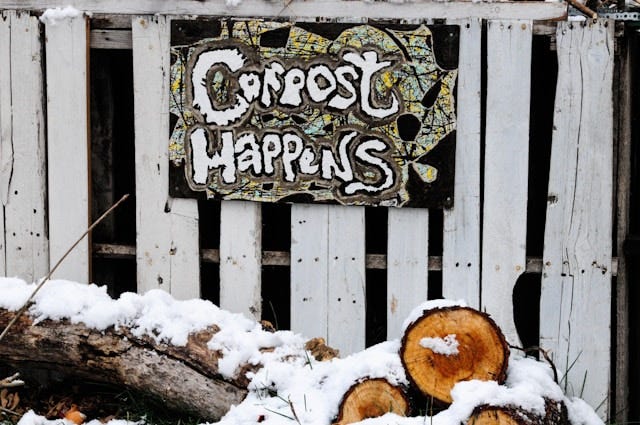Every other Friday, I share 5 things to consider. On the Fridays between, I mix things up. This is a Friday between.
GM ☕️
Just 1 thing today…
“How do we engage the news without losing ourselves in a doom spiral?”
This question has been echoing around and inside me since Jan 20, since the election, since Oct 2023, since Russia invaded Ukraine, since Uvalde, since George Floyd, since early COVID, since... well, at least it’s persistent.
If you’re asking too, you’re not alone.
My current strategy is to develop a quality of awareness, rather than quantity.1 This means I am choosy about when and where I consume news, I mentally prepare, I try to let myself feel, and I consciously release what I can’t control. (On my good days, alright? Don’t get me wrong.)
I also have purpose. Because the outside world affects our inner world and vice versa,2 I mean to integrate what I encounter for the sake of wholeness. I can’t fix most things. However, in small, indirect, and even quirky ways, I can support healing.
I don’t want to consume the news; I want to compost it.
Think about the human body: it takes in food, processes nutrients, and discards waste. Now go one step further, and…what about that waste?
How are we meant to deal with the toxic stuff? The shit, in other words.
Trust me, I get it, ew, gross. This part stinks to high heaven and turns the stomach. We don’t want to touch. It could make us sick. We need to be cautious. And yet…
Even waste belongs to the cycle of life.
In agriculture, “the power of shit” has long been connected to abundant harvests. Though it’s hard to fathom, human waste was once such a valuable commodity that it gave rise to thriving “humanure” markets, as well as some conflict and theft.3
In the humanities, this all has metaphorical weight. Christian minister and writer
teaches a theology of compost in which he sanctifies the process. Through this frame, compost is a holy endeavor:“Worms can be magic. Worms can be engines of redemption. Worms devour things of death and poop out life… Death and the things of death, our sin, our suffering, the ways we hurt each other, the ways we harm ourselves—these things are never the end of God’s story.” - Jeff Chu
Composting, then, can relate to both material and spiritual wellbeing. In addition, the process itself can shed light on creativity, problem-solving, and change. Author Ann Patchett describes it this way:
“I am a compost heap, and everything I interact with, every experience I’ve had, gets shoveled onto the heap where it eventually mulches down, is digested and excreted by worms, and rots. It’s from that rich, dark humus, the combination of what you encountered, what you know and what you’ve forgotten, that ideas start to grow.” - Ann Patchett4
With all this on my mind, I composted a bit of news today. First, I consumed the information and let it settle at my core. Then, I pulled a few living threads from the excrement.5 Now, I give those to you:

This is one tiny (yes, very tiny) act of transformation that I hope will connect to another, that connects to another, that connects and connects and connects…until together we are “preparing the soil” for a most beautiful future.
Later, when you compost the news—perhaps you will make art, make protest signs, call your congressperson, speak at school board, participate in mutual aid, share a skill, simply hold someone’s hand, or something else entirely—
know that nothing rests on one person alone. As with all work, we will manage our energy. We will take turns and rest. We will tend our mental health and do our best to remain calm, so we can respond with wisdom and care.
One tiny transformation at a time, we will turn this compost heap together.
Blessings on your gardens, friends.
“A single worm can't do very much, but in community they have such tremendous power… In our acts of love, we participate in preparing the soil in which…love and justice can take root.” - Jeff Chu
ICYMI, last week I shared 5 Things to Consider:
Thank you for reading! This newsletter is a labor of love. 💌 To support it, you can upgrade to a paid subscription, share this post, or engage my services. You can learn more about my work at jenniferlphillips.com.
Peace,
Jenny
P.S. whoops!👇🏼

Unfortunately, I cannot tell you the right amount of news, if there even is such a thing. Clearly, the extremes of avoidance and obsessing are undesirable, but there’s a whole spectrum between, and each of us is different.
Staying informed is not only cognitive work, but also core work. By “core,” I mean that it cuts to our center. To encounter the world’s suffering and struggle will affect how we understand our identity, shape our perception, and mold our relation to the world. It will touch the most tender parts of us, if we let it.
Lina Zeldovich, “The Power of Shit,” Aeon Essays, Lina Zeldovich: “In [Japan in] the summer of 1724, two groups of villages erupted in ‘poop wars’, fighting over the rights to gather night soil [human manure] from different parts of Osaka. In response, the urbanites formed their own organisations that oversaw night soil trading and price negotiations – and they raised prices on their poo. Some of the poorer farmers found themselves in a great deal of trouble because they were no longer able to afford the fertiliser, which led to a crime unfathomable by our standards: stealing shit. It was an offence serious enough that the law-enforcement authorities sent the felons to prison.”
Via Austin Kleon.
No offense intended to Rosalind Adams, the journalist behind this byline. The news may be excrement, but your writing is not. I appreciate what you do.





Loved loved loved this one!